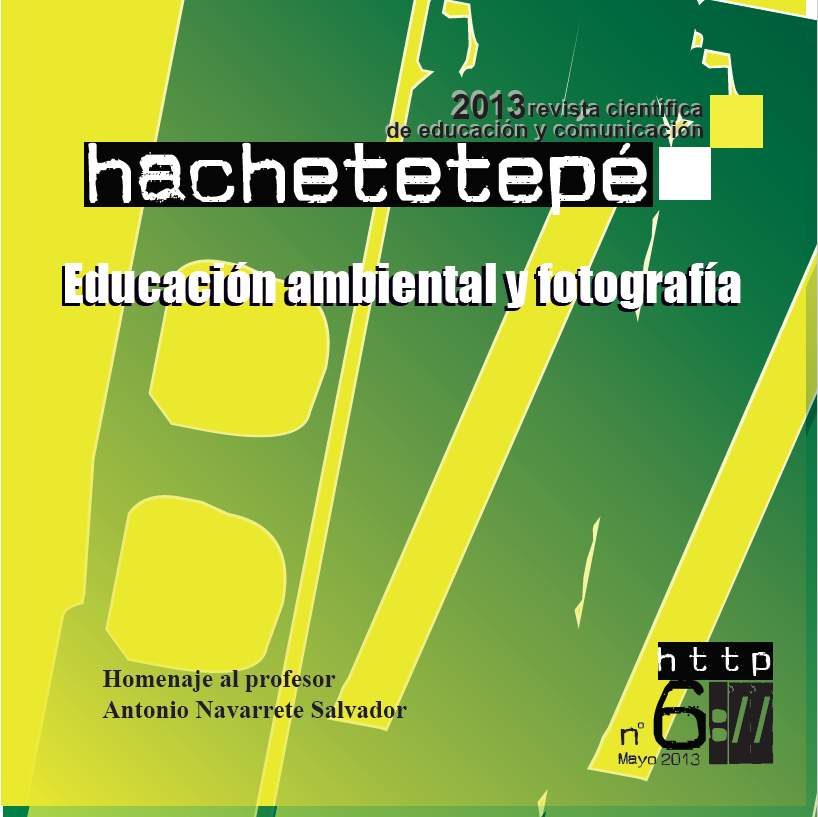International Cooperation as a Means to Foment Environmental Education: Young Volunteers with Latin America

Info
Abstract
This works sets out to analyse the potential of International Cooperation programmes as regards Environmental education. In this respect, we shall present a case-based study centred on the programme Young Volunteers with Latin America (JVCAL). We shall group together information about the perceptions and opinions on this initiative. The sample group was made up of nineteen participants between the ages of 22 and 38 years, all of whom answered our on-line questionnaire. So as to elaborate upon the given answers, four of these were also interviewed. The results show a positive outcome as regards the problem of the environment due to the participation in the programme. We conclude that the programme JVCAL has met its objectives and this reinforces the idea that these types of cooperation projects are a fundamental tool towards a social change as regards sustainability.
Keywords
Downloads
How to Cite
License

This work is licensed under a Creative Commons Attribution-NonCommercial-NoDerivatives 4.0 International License.
Those authors who have published with this journal, accept the following terms:
- They will retain their copyright and guarantee the journal the right to first publication of their work, which will simultaneously be subject to the Creative Commons Attribution License . They may be copied, used, disseminated, transmitted and publicly displayed, provided that the authorship, url, and magazine are cited, and are not used for commercial purposes. No derivative works are allowed.
- They may adopt other non-exclusive license agreements for the distribution of the published version of the work (e.g., deposit it in an institutional telematic archive or publish it in a monographic volume) provided that the initial publication in this journal is indicated.
- Disseminate your work through the Internet (e.g., in institutional telematic archives or on your website) once the manuscript is accepted, which may lead to interesting exchanges and increased citations of the published work. (See The effect of open access).
Hachetetepé. Scientific journal of education and communication does not charge a fee for the submission of manuscripts or for the publication of its articles.
References
Bonil, J., Junyent, M. y Pujol, R. M. (2010). Educación para la sostenibilidad desde la perspectiva de la complejidad. Revista Eureka Sobre Enseñanza y Divulgación de las Ciencias, 7, 198-215.
Bonil, J., Sanmartí, N., Tomás, C., y Pujol, R. M. (2004). Un nuevo marco para orientar respuestas a las dinámicas sociales: El paradigma de la complejidad. Investigación En La Escuela, 53, 5-19.
Boza, J. y Báez, J. M. (2002). La Cooperación al Desarrollo en España. El modelo español de Ayuda Oficial al Desarrollo. Universidad de Las Palmas. América Latina, 14; 45.
Calvo, S., Benayas del Álamo, J., y Gutiérrez, J. (2006). Educación para el Desarrollo Sostenible: Evaluación de retos y oportunidades del decenio 2005-2014. Revista Iberoamericana De Educación, 40; 25-69.
Delval, J. (1994). Moral, Desarrollo y Educación. Madrid: Paidós.
Dubois, A. (1995). Cooperación al Desarrollo Popular.
Fundación Desarrollo y Ciudadanía. (2010). Desarrollo Programa Formativo en Nicaragua para Jóvenes Voluntarios de América Latina 2010.
Gómez, M. y Sanahuja, J. A. (1999). El sistema internacional de Cooperación al Desarrollo. Madrid: Editorial Cideal.
González, E. (1996). La Educación Ambiental. Un nuevo campo de acción pedagógica. Bogotá, Colombia. Perfiles liberales, 24; 15 – 19.
Hernández, S. R. (2008). El modelo constructivista con las nuevas tecnologías, aplicado en el proceso de aprendizaje. Revista de Universidad y Sociedad del Conocimiento, 5 (2), 26-35.
Novo, M. (1995). La Educación Ambiental. Bases éticas, conceptuales y metodológicas. Madrid, España: Editorial Universitas.
Sánchez Casado, I., Dávalos Gordillo, M., y Macarro Borrego, M. (2011). Implementación del programa de prácticas para estudiantes en Cooperación para el Desarrollo de la UEX. V Congreso Universidad y Cooperación. Cádiz.

